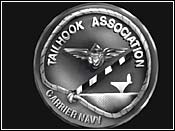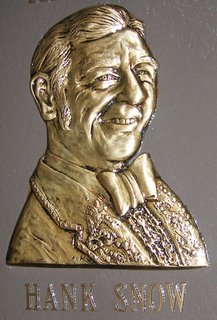
In the summer of 1964, just after I got out of the Army, I got a job as a lab assistant at the USDA, Entomological Research Division's Insects Affecting Animal and Man Research Laboratory in Gainesville, Florida--just on the south edge of the University of Florida campus.
An old curse goes, "May you live in interesting times!" Those were interesting times. I had grown up in New Jersey, attended college there for three semesters and then spent three years in the Army--one in Monterey, California, and two on a U.S. Air Force Base in Japan.
While in Japan I had heard and read about racial tensions and the civil rights movement, but that was fairly far removed from my reality. So then I was a civilian and heading off to Florida to make my way in the civilian world. I took a Greyhound bus from my folks' home in New Jersey down to Gainesville. On the way, when we stopped at a terminal in North Carolina, I became acutely aware, for the first time, for real, of "separate, but 'equal.'"
When I got to Florida, I found that the bus terminal in Gainesville was also segregated as were many places including the movie theater. I had not grown up unaware of racial tensions, fights, and discrimination in the North, but this was altogether something new to me. I had seen a modicum of discrimination and race hatred in school growing up, but the total institutionalization of race discrimination was something different for me. This is something to explore in other posts, though.
Interesting times, as I said, but I digress from sexing flies.
Flies! Flies! Flies! I was assigned to work under a principal investigator-an entomology PhD--who was doing research on Florida dog flies, AKA stable flies (
Stomoxys calcitrans). These flies look very much like the common housefly (
Musca domestica) except if you look closely at their mouth parts. The common housefly has a mouth that sort of hangs down in a loop and is like a sponge for sopping up wet stuff. The stable fly, on the other hand, has a sharp pointed mouth that sticks straight out like the front of some
jet fighters which it uses for biting and sucking blood. The female stable fly requires a blood meal in order to lay eggs. The bite of the fly stings, but there is no lingering itch. We were doing the research because this fly had become an economic pest on the beaches of Florida, particularly around Panama City.
What we were about then, in the laboratory, was determining which products and/or processes would be the most effective for controlling this pest. One of the things we did was to test various pesticide agents on the flies to see which gave the most effective control and what were the LD-50's and LD-100's of the toxins (LD = lethal dose and LD-50 is the dosage at which 50% of the targeted species would be killed). Nothing with insects (or life!) is ever simple, however. Females, due to their natural superiority over males, appear to be several times more resistant to most agents than males of the same species.
Consequently, the duty fell to me to segregate the flies which I raised in our lab into males and females. Raising the flies was an adventure in and of itself. In the lab we had large screened cages with thousands of flies in them. One of my job was to feed the flies daily. This was done by soaking cotton balls in a honey-water mixture and sticking these on the screening of the cage. The flies would then come and feed by sticking their sharp mouths into the cotton and drinking their fill. When we wanted them to lay eggs, however, I had to go to a local slaughter house and get several gallons of cow's blood which we mixed with an anti-coagulating agent. The cages with females to lay eggs got cotton balls soaked in the cows' blood rather than honey- water so they could lay eggs. Pleasant job, eh? Once the eggs were laid, they were put in jars of growing media where the eggs turned into maggot-like creatures that ate up some of the media and then turned into pupae [ insects go through a number of different life stages]. At the end of the final larval stage, the once soft-bodied larva develops a hard outer shell and becomes a
pupa. Inside the pupa, the insect begins reforming itself from the breakdown and rearrangement of larval tissue. It is growing eyes, wings, and legs. When it emerges from the pupa, it will be an adult insect. Once the pupae are ready to hatch, they were transferred to screened cages and the cycle began anew.
How does one sex stable flies? I would get into an Arctic parka (in Florida, in the summer), take a columnar screened cage about a foot in diameter with a height of about three feet filled with flies, and walk into a walk-in refrigerator and put the cage in front of a blower that blew very cold, refrigerated air through the cages--the flies would fall like flies! The flies were not dead, only asleep, just like in cold weather. I then sat at a large lab table in the refrigerator with a large magnifying glass surrounded by a fluorescent lamp. I would pick up one fly at a time gently and carefully with tweezers and inspect its abdomen for tell-tale signs of its respective sex.
I would then sort them, like Shakers coming down two stairways, and put the segregated sexes in groups of 25 in small screen cages about 2 inches in diameter and maybe a foot long with a hook on the top. These could then be used in laboratory tests to evaluate kill rates from exposure to various chemicals in various ways.
Those were
interesting times while I was in a refrigerator dressed like Charlie Brown in the dead of winter in the Florida summer heat staring at fly abdomens and segregating males from females, but change was in the air--demonstrations against more insidious segregations were breaking out all over the South while we struggled to make the beaches a better place to be.
Doc Rock
11 Jan 2005 (in my 64th year)












